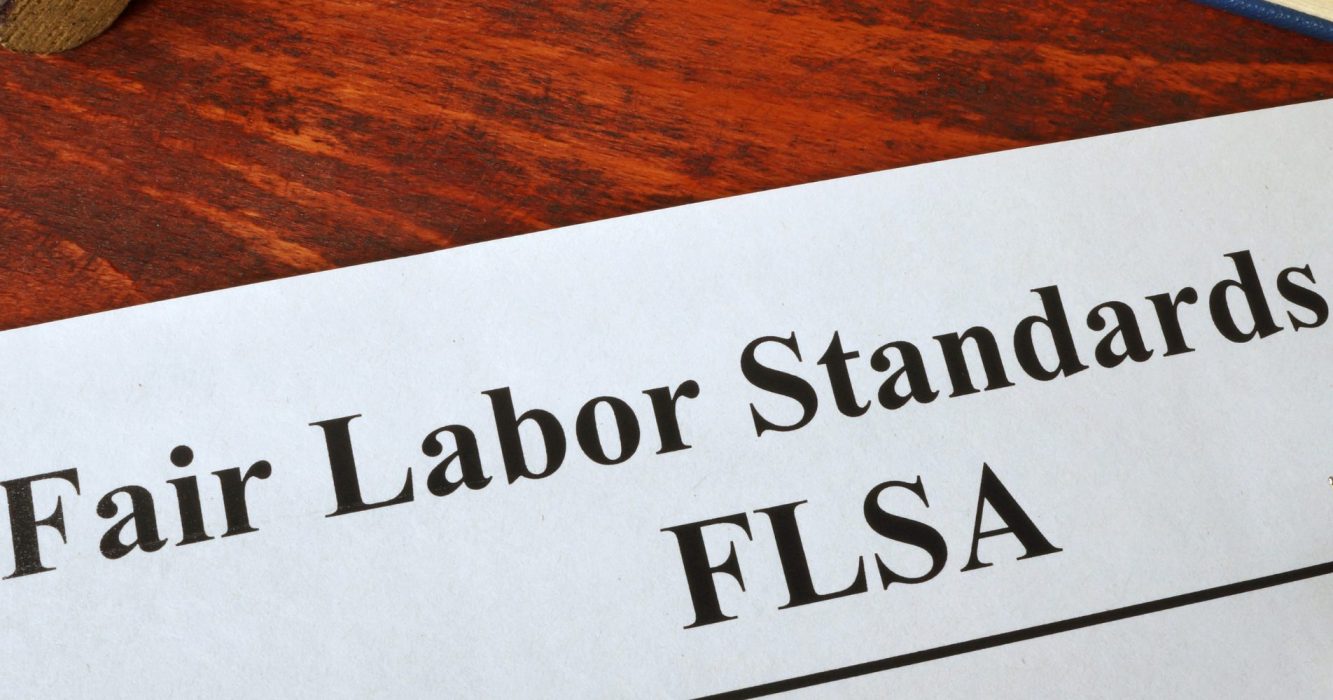
Last week the U.S. Supreme Court unanimously ruled that the proper evidentiary standard of proof for Fair Labor Standards Act (FLSA) cases is a “preponderance of the evidence” – not the higher standard of “clear and convincing evidence.”
The case of E.M.D. Sales, Inc v. Carrera, et al. looked at whether a sales position at the company could be classified as exempt under the Outside Sales exemption of the FLSA. Pursuant to the U.S. Department of Labor regulations a job can qualify for the Outside Sales exemption if the job’s “primary duty (1) is making sales or obtaining order of contracts for services; and (2) [the worker] is customarily and regularly engaged away from the employer’s place of business.”
As a food distribution company, E.M.D. Sales employed three sales representatives that sold their products to grocery stores. These employees were classified as exempt and were not paid overtime if they worked beyond 40 hours in a week. They sued E.M.D. Sales stating they were misclassified, and their position should have been non-exempt entitled to overtime pay when their weekly hours worked exceeded 40 in a week.
This would seem a pretty mundane case that should have been decided at the lower court level and been done with. However, the lower court found that the employer, E.M.D. Sales, failed to prove the sales representative position was exempt but in so doing used the higher evidentiary standard of clear and convincing evidence. The Court held the employer only demonstrated “there is possibility – but not clear and convincing evidence” the sales representative made their own sales rather than just submitting orders.
The employer appealed the case to the U.S. Court of Appeals for the 4th Circuit, which upheld the lower court’s application of the clear and convincing standard for FLSA cases, consistent with long-standing precedent in statutory interpretation. By the way, this is the only Appeals Court in the country to use this standard while other Appeals Courts (5th, 6th, 7th, 9th, 10th and 11th) all use the preponderance of the evidence standard. So, the 4th Circuit was kind of begging for a slap down here.
So, now this case climbs to the U.S. Supreme Court who stated “that the default standard of proof in American civil litigation has been ‘preponderance of the evidence’ since 1938. The Court found that the FLSA is not unique in its application toward the public’s interest and is more akin to laws applying to workplace protections that use the lower standard of preponderance of the evidence to decide a case.
With this evidentiary standard settled, the main issue of whether the sales representative position was exempt goes back to the lower court for further proceedings.
This decision was unanimous by the Court’s Justices.
Employers are advised to check their job’s FLSA classifications. Damages for misclassification of an employee as exempt and not properly paying overtime includes compensatory damages that would look back three years from the date of the complaint and possibly award liquidated damages amounting to twice the award.
HR Professionals should be up to speed on proper FLSA classification analysis. Proper exempt classification determination for Executive, Administrative or Professional (EAP) exemptions requires meeting three tests.
- The salary basis test (paid a salary)
- Paid and a salary level of at least $684/week
- Must also meet the exemptions job duties test
Last summer a Texas Court shot down the U.S. Department of Labor’s attempt to change the salary level exemption test lowering the salary level back down to $684/week to pass that exemption test.
Because the Outside Sales position does not have a salary basis requirement, the Court does not look at that test for this position.
Sources: Lexology. Davis Wright Tremaine LLM Employment Advisor. Unanimous Supreme Court Ruling Establishes Lower Bar for Proving Overtime Exemptions Under FLSA (1/16/25); Zywave Weekly Content Alerts Digest. Legal Update U.S Supreme Court Rejects Higher Standard of Proof in Overtime Exemption Cases. (1/20/2025)
By Michael Burns, courtesy of SBAM-approved partner, ASE.
Click here for more News & Resources.